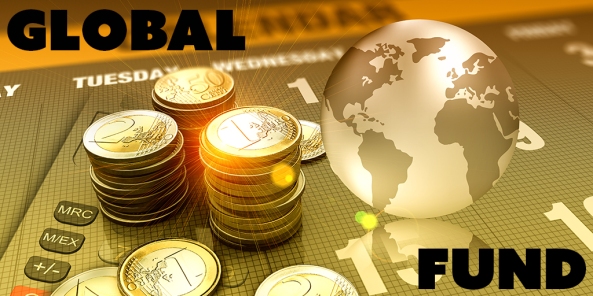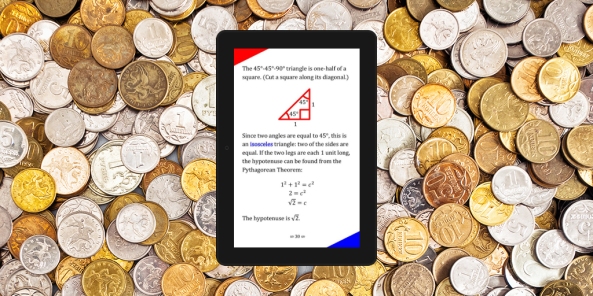
Image from ShutterStock.
HOW MUCH DID KINDLE UNLIMITED PAY PER PAGE?
Following is a monthly breakdown of the KENP per-page rates for Kindle eBooks enrolled in KDP Select, for pages read through Kindle Unlimited or Amazon Prime borrows. (For the Global Fund, scroll down past the list of Kindle Unlimited per-page rates.)
- April, 2023: $0.00412
- March, 2023: $0.00406
- February, 2023: $0.00443
- January, 2023: $0.00424
- December, 2022: $0.00456
- November, 2022: $0.00458
- October, 2022: $0.00450
- September, 2022: $0.00471
- August, 2022: $0.00426
- July, 2022: $0.004293
- June, 2022: $0.00458
- May, 2022: $0.00456
- April, 2022: $0.00447
- March, 2022: $0.00434
- February, 2022: $0.0045
- January, 2022: $0.00429
- December, 2021: $0.00475
- November, 2021: $0.00476
- October, 2021: $0.00448
- September, 2021: $0.00452
- August, 2021: $0.00426
- July, 2021: $0.00430
- June, 2021: $0.00444
- May, 2021: $0.00441
- April, 2021: $0.00450
- March, 2021: $0.00444
- February, 2021: $0.00455
- January, 2021: $0.00422
- December, 2020: $0.00451
- November, 2020: $0.00464
- October, 2020: $0.00454
- September, 2020: $0.00459
- August, 2020: $0.00432
- July, 2020: $0.00429
- June, 2020: $0.00455
- May, 2020: $0.0042
- April, 2020: $0.00423
- March, 2020: $0.00426
- February, 2020: $0.00455
- January, 2020: $0.00441
- December, 2019: $0.00466
- November, 2019: $0.00493
- October, 2019: $0.0047
- September, 2019: $0.0047
- August, 2019: $0.00439
- July, 2019: $0.00439
- June, 2019: $0.00464
- May, 2019: $0.00466
- April, 2019: $0.00467
- March, 2019: $0.00451
- February, 2019: $0.00478
- January, 2019: $0.00442
- December, 2018: $0.00487
- November, 2018: $0.0052
- October, 2018: $0.00484
- September, 2018: $0.00488
- August, 2018: $0.00449
- July, 2018: $0.00449
- June, 2018: $0.0046
- May, 2018: $0.00454
- April, 2018: $0.00456
- March, 2018: $0.00449
- February, 2018: $0.00466
- January, 2018: $0.00448
- December, 2017: $0.00506
- November, 2017: $0.00463
- October, 2017: $0.00456
- September, 2017: $0.00443
- August, 2017: $0.00419
- July, 2017: $0.00403
- June, 2017: $0.00422
- May, 2017: $0.00433
- April, 2017: $0.00457
- March, 2017: $0.0046
- February, 2017: $0.00497
- January, 2017: $0.00475
- December, 2016: $0.00524
- November, 2016: $0.00538
- October, 2016: $0.00519
- September, 2016: $0.00497
- August, 2016: $0.00458
- July, 2016: $0.00481
- June, 2016: $0.00493
- May, 2016: $0.00469
- April, 2016: $0.00496
- March, 2016: $0.00478
- February, 2016: $0.00479
- January, 2016: $0.00411
- December, 2015: $0.00461
- November, 2015: $0.00492
- October, 2015: $0.0048
- September, 2015: $0.0051
- August, 2015: $0.0051
- July, 2015: $0.00578
The list below is for the KDP Select Global Fund.
- April, 2023: $46.1 million
- March, 2023: $46.1 million
- February, 2023: $44.6 million
- January, 2023: $47.9 million
- December, 2022: $45.3 million
- November, 2022: $45.2 million
- October, 2022: $45.2 million
- September, 2022: $45.1 million
- August, 2022: $45.1 million
- July, 2022: $44.5 million
- June, 2022: $43.4 million
- May, 2022: $43.3 million
- April, 2022: $41.5 million
- March, 2022: $41.4 million
- February, 2022: $39.4 million
- January, 2022: $42.9 million
- December, 2021: $40.2 million
- November, 2021: $39.9 million
- October, 2021: $39.8 million
- September, 2021: $39.7 million
- August, 2021: $39.6 million
- July, 2021: $38.1 million
- June, 2021: $36.5 million
- May, 2021: $35.9 million
- April, 2021: $35.5 million
- March, 2021: $35.4 million
- February, 2021: $33.5 million
- January, 2021: $36 million
- December, 2020: $34 million
- November, 2020: $33.2 million
- October, 2020: $32.9 million
- September, 2020: $32.7 million
- August, 2020: $32.6 million
- July, 2020: $32.4 million
- June, 2020: $32.3 million
- May, 2020: $32.2 million
- April, 2020: $30.3 million
- March, 2020: $29 million
- February, 2020: $27.2 million
- January, 2020: $28.2 million
- December, 2019: $26.2 million
- November, 2019: $26.1 million
- October, 2019: $26 million
- September, 2019: $25.9 million
- August, 2019: $25.8 million
- July, 2019: $25.6 million
- June, 2019: $24.9 million
- May, 2019: $24.6 million
- April, 2019: $24.1 million
- March, 2019: $24 million
- February, 2019: $23.5 million
- January, 2019: $24.7 million
- December, 2018: $23.7 million
- November, 2018: $23.6 million
- October, 2018: $23.5 million
- September, 2018: $23.4 million
- August, 2018: $23.3 million
- July, 2018: $23.1 million
- June, 2018: $22.6 million
- May, 2018: $22.5 million
- April, 2018: $21.2 million
- March, 2018: $21 million
- February, 2018: $20 million
- January, 2018: $20.9 million
- December, 2017: $19.9 million
- November, 2017: $19.8 million
- October, 2017: $19.7 million
- September, 2017: $19.5 million
- August, 2017: $19.4 million
- July, 2017: $19 million
- June, 2017: $18 million
- May, 2017: $17.9 million
- April, 2017: $17.8 million
- March, 2017: $17.7 million
- February, 2017: $16.8 million
- January, 2017: $17.8 million
- December, 2016: $16.8 million
- November, 2016: $16.3 million
- October, 2016: $16.2 million
- September, 2016: $15.9 million
- August, 2016: $15.8 million
- July, 2016: $15.5 million
- June, 2016: $15.4 million
- May, 2016: $15.3 million
- April, 2016: $14.9 million
- March, 2016: $14.9 million
- February, 2016: $14 million
- January, 2016: $15 million
- December, 2015: $13.5 million
- November, 2015: $12.7 million
- October, 2015: $12.4 million
- September, 2015: $12 million
- August, 2015: $11.8 million
- July, 2015: $11.5 million
Write Happy, Be Happy
Chris McMullen
Author of the Improve Your Math Fluency series of math workbooks and self-publishing guides



